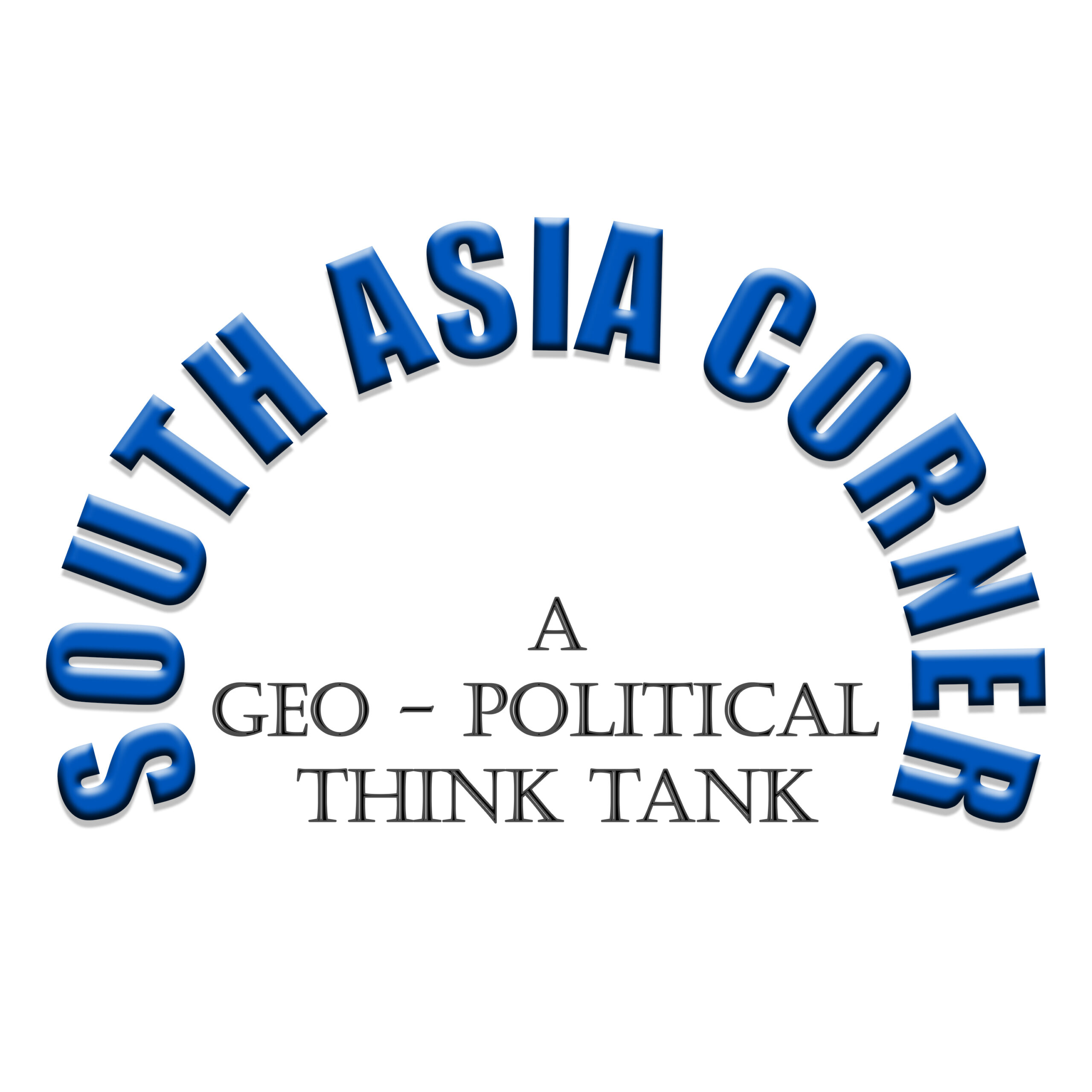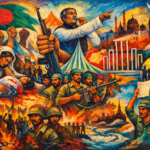Bangladesh, a nation forged from a history of pain, struggle, and sacrifice, often finds itself metaphorically riding a wild horse—an unruly beast that pulls it in conflicting directions. Since its inception in 1971, when it emerged from the bloody struggle for independence from Pakistan, Bangladesh has been battling not just external forces but internal contradictions that seem to rewrite its history, reshape its values, and question the very essence of its hard-earned sovereignty.
Reinventing the Wheel of Progress
Since its birth, Bangladesh has relentlessly pursued establishing its identity on the global stage. A young nation in the context of historical epochs, it has nevertheless strived to create a distinct image—often at odds with the ideals that originally fueled its creation. As the leadership shifts, so too do the visions for the nation’s future, each era seemingly trying to reinvent the wheel of progress with every change of guard.
The political landscape is marred by abrupt changes and shifts, leading to policies that frequently disrupt long-term development. Projects are scrapped, rebranded, or revised to suit the whims of the ruling power. Amid this turbulence, one wonders if the leadership is attempting to accelerate progress or simply trying to overwrite the achievements of its predecessors, erasing the collective memory of struggle and unity.
Erasing Struggle and Sacrifice
The identity of Bangladesh is deeply intertwined with the language movement of 1952, the student-led protests, and the ultimate liberation war of 1971. The sacrifices made during these pivotal moments are etched into the national consciousness—etched in a way that bleeds through every cultural expression, be it art, literature, or film. Yet, in recent years, there appears to be an effort to diminish these legacies. For instance, the role of certain leaders in the liberation war is being downplayed, and the significance of the language movement is being overshadowed by other events. This trend of selective memory and historical revisionism threatens to erase the very essence of the struggle.
Is Bangladesh, in trying to move forward, erasing its painful yet empowering past? The risk of erasing history is not merely that the struggle and the sacrifices of countless freedom fighters are forgotten, but that future generations are left without a compass. They may not comprehend the price of freedom, nor the value of unity in the face of adversity.
The Melodrama of Change: A Self-Inflicted Turbulence
Every nation changes, but few do so as dramatically and frequently as Bangladesh. The perpetual cycle of political turmoil, regime changes, and policy shifts could be seen as the melodrama of governance. The incessant changing of guards has often felt less like a peaceful transition of power and more like a grand opera, where each act ends in a crescendo of allegations, protests, and uncertainty.
These political dramas often attempt to position new leaders as saviors, trying to evaporate the collective memory of previous struggles and sacrifices. Promises are made and broken, slogans are chanted and forgotten, and through it all, the common people remain as spectators, bewildered by the performance. Every new regime brings an illusion of change as if the reins of the wild horse have been tamed. But in reality, the beast continues to gallop uncontrollably, taking the nation in unpredictable directions.
The Risk of Riding Aimlessly
In the rush to modernise and establish itself as a competitive player in the global arena, Bangladesh faces the risk of losing sight of its core values. There is a delicate balance between striving for progress and honouring the past. Ignoring the historical context—erasing or minimising the significance of bloodshed, of the women who bore the brunt of violence, of the martyrs who died for the flag—means risking a loss of identity.
When a nation forgets its struggles and sacrifices, it loses its soul. Bangladesh, in riding the wild horse of change without a clear direction, is at risk of becoming a nation that sees progress only in material terms. The true progress of a nation lies in understanding its roots and ensuring that every step forward is anchored in the values and sacrifices that gave birth to its freedom.
Moving Forward: A Hopeful Narrative?
Despite the melodrama and the wild ride, the resilience of the Bangladeshi people cannot be erased. There is an inherent knowledge of what it means to fight against the odds and rise above adversity. The current leadership, and indeed every future leadership, must harness this resilience, this collective memory of struggle, to steer the nation in a direction that acknowledges its history and aspirations for the future. Only by acknowledging and learning from the past can a nation truly progress.
To navigate the wild horse successfully, Bangladesh must always remember why it took the reins in the first place. It must have a clear vision and a well-defined path; only then can it control its own destiny—rather than be driven by it.







**backbiome**
Mitolyn is a carefully developed, plant-based formula created to help support metabolic efficiency and encourage healthy, lasting weight management.